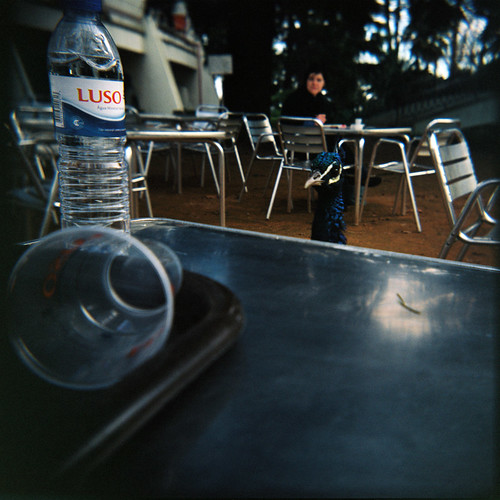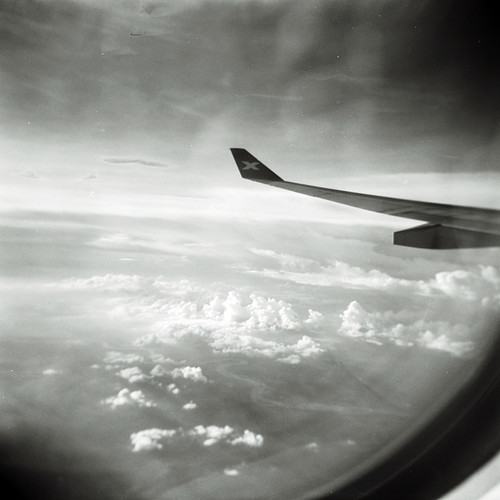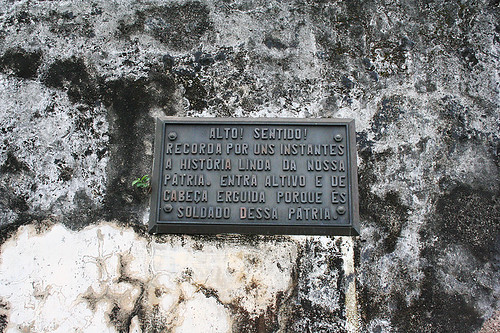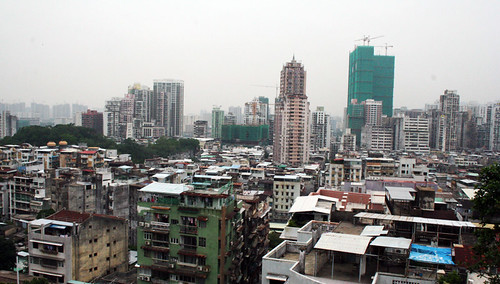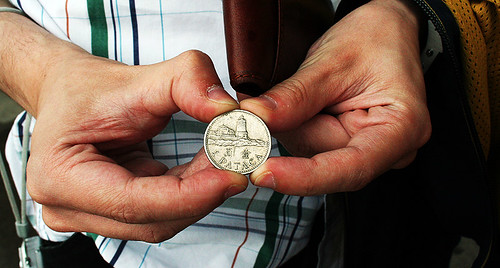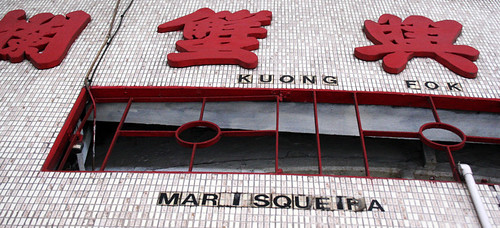palácio de cristal, porto.
Category: in portugal
i could spend days and days in my little country by the sea, doing nothing but taking pictures of golden trees against blue skies. :)
here we go again
澳門 = àomén = macau
The name Macau is thought to be derived from the temple. It is said that when the Portuguese sailors landed at the coast just outside the temple and asked the name of the place, the natives replied “A-Ma-Gao” (Bay of A-Ma). The Portuguese then named the peninsula Macau.
from wikipedia
macau, the most densely populated territory in the world, is a little city that used to be portuguese – until the portuguese gave it to china in 1999 or so. it’s a short boat ride from hong kong, so we decided to hop on the ferry and spend a day there last week… and well, what a difference a boat ride makes.
macau is a million years from hong kong. it thrives on casinos (and pawn houses) – i believe it is the only place in “china” where gambling is legal (1 country, 2 systems policy). our companions on the ferry? loads of old chinese people, eager to hop on the first bus that drove them to a casino. which is a bit sad… but then again, the overwhelming feeling i got in macau was precisely sadness. macau looked old and depressed, with the same chaotic urban planning reminiscent of a neglected mid-sized portuguese city.
the fun part though, was checking all the double translations in portuguese/chinese that give macau a very peculiar feeling (even though only 0.6% of the population speaks portuguese), counting our patacas, and walking in a portuguese “calçada” again, surrounded by semi-familiar facades.
closing our eyes and pretending, just for a second, that we were in portugal.
… se sabiam, à partida, que não havia trabalho para mim?” Volta e meia, a pergunta martela na cabeça de Cláudia Baptista, 29 anos, licenciada em Jornalismo, a trabalhar como técnica auxiliar de educação. Durante quase dois anos, foi estagiária numa rádio nacional.
Começou por fazer um estágio curricular não remunerado, durante três meses, foi convidada a prolongá-lo por outros três. Aceitou. «Durante seis meses, paguei para estagiar», recorda. E depois? «Depois, ofereceram-me ficar a troco de 300 euros, a recibo verde.»
Vivia em casa dos pais, o dinheiro dava para pagar transportes e alimentação. Durante os 13 meses de isenção da segurança social aguentou. O amor à profissão falou mais alto e os elogios constantes que recebia alimentavam a esperança de um contrato. «Trabalhava 15 a 16 horas por dia, editava peças, sonorizava. Tinha responsabilidades de um jornalista, mas, no papel, não deixava de ser estagiária», resume.
Acabada a isenção, «dei ouvidos ao meu orgulho pessoal e profissional que se começava a construir». Pediu que lhe pagassem o salário mínimo e a Caixa. A resposta foi negativa. Cláudia saiu, outros estagiários continuaram. Todos os anos, chegam mais.
À distância de seis anos, Cláudia não consegue criticar apenas a estação onde trabalhou: «Há uma concordância do Estado, instituições de educação, empregadores e sindicatos: todos sabem que esta rotatividade de estagiários existe, mas ninguém faz nada para mudar porque a situação interessa a muita gente.» Não se envergonha de dizer que ainda hoje tem apoio psicológico e deixa o aviso: «Já começámos a gerar uma geração de frustrados.»
e
Apesar da crueza dos relatos, o discurso oficial é positivo. O presidente do IEFP, Francisco Madelino, esclarece que «os jovens licenciados são os que mais rapidamente obtêm trabalho». Demoram oito meses, em média, enquanto os não licenciados levam entre 12 e 14 meses.
da reportagem geração em saldo, da revista visão.
apetece-me comentar (ler puxar orelhas e gritar “acordem para a vida!”), mas é bater no ceguinho. e está-se tão bem em shanghai…

